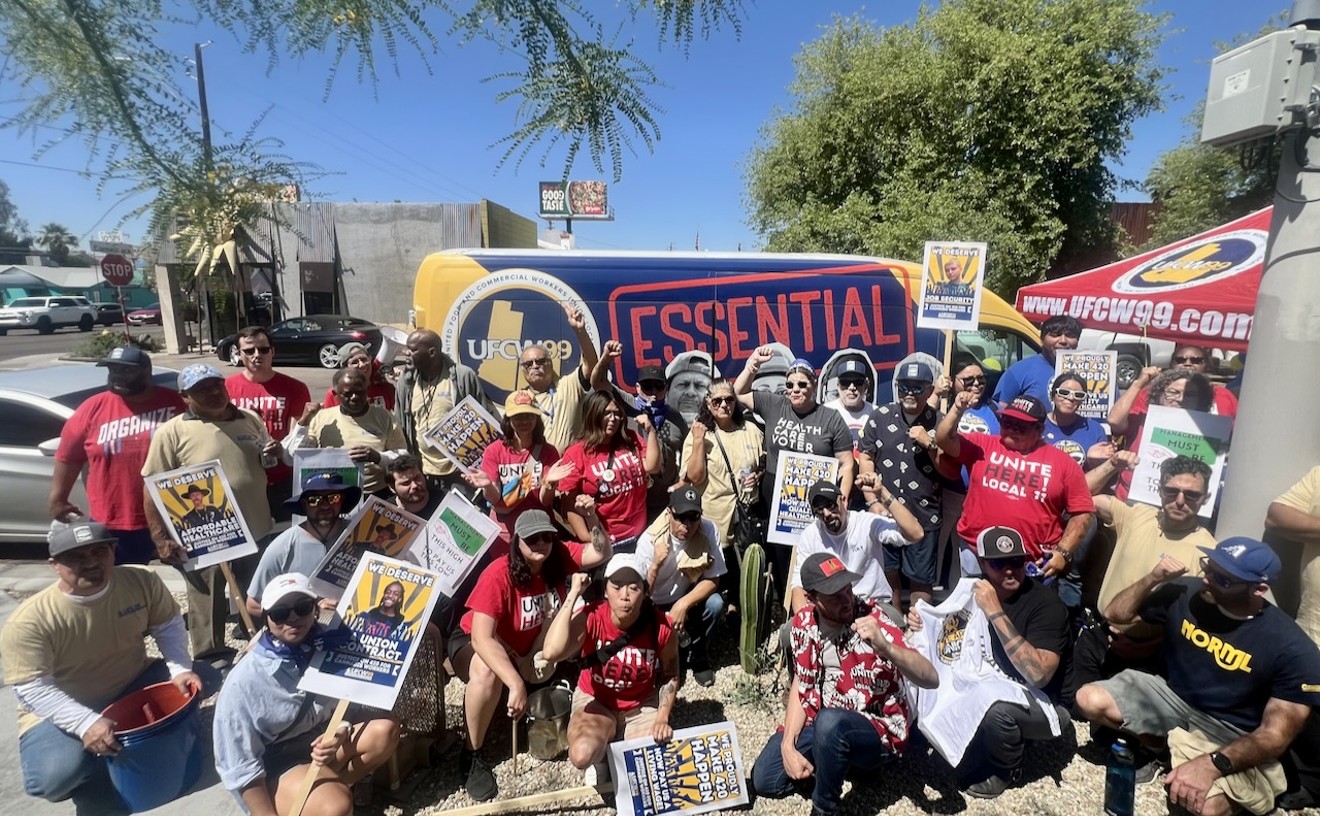Finley, 55, of Cave Creek, pleaded guilty before U.S. Magistrate Judge Terence P. Kemp of the Southern District of Ohio to a charge of "conspiracy to commit federal programs bribery and honest services wire and mail fraud," the U.S. Department of Justice announced this morning.
She resigned from the company in 2013 after the corruption scheme was alleged by a whistle-blower. Top executives in Redflex's Australian-based parent company, Redflex Holdings, resigned in 2013 following an internal review confirmed some of the allegations.
Finley’s sentencing hearing hasn't been scheduled yet. Chicago newspapers have reported extensively on her alleged involvement in a bribery scheme between Redflex's Chicago consultant Martin O'Malley and ex-Chicago managing deputy commissioner of transportation John Bills.
O'Malley paid Bills hundreds of thousands of dollars in cash, plus rewarded him with travel, a Gilbert condominium and other goodies, in the long-running scheme to make sure Redflex kept its very lucrative photo-enforcement contract with the city of Chicago. O'Malley, the "bagman," pleaded guilty in December.
Finley pleaded guilty to a raft of bribery charges in September of 2014. However, today's guilty plea doesn't mention the Chicago corruption. Instead, she admitted to making campaign contributions from 2005 to 2013 to public officials in the Ohio cities of Columbus and Cincinnati.
"Finley and others, including another executive of the company, agreed to provide the conduit campaign contributions with the understanding that the elected public officials would assist the company in obtaining or retaining municipal contracts, including a photo red light enforcement contract with the City of Columbus," the DOJ says. "Finley also admitted she and her co-conspirators concealed the true nature and source of the payments by the consultant’s submission and the company’s payment of false invoices for 'consulting services,' which funds the consultant then provided to the campaigns of the elected public officials."
The Ohio officials weren't named in the DOJ news release, but the Columbus Dispatch reports today that, "One of those officials is Columbus City Council President Andrew Ginther, who is running for mayor."
In 2008, Redflex provided the photo-enforcement for Arizona's much-hated freeway-camera program under ex-Governor Janet Napolitano. The program was dumped after two years due to citizen complaints; the fact that the tickets could be safely ignored by savvy motorists didn't help. Jay Heiler, now a member of the Arizona Board of Regents, once served as the company's spokesman.One of the Ohio officials Finley reportedly helped bribe was Columbus City Council President Andrew Ginther, who's running for mayor.
tweet this
The freeway program also spurred the 2009 fatal shooting of Redflex speed-camera operator Doug Georgianni on the Loop 101. Thomas Patrick De-Stories is currently serving a 22-year prison sentence for the murder.
Some Redflex cameras still operate on state highways because their permits haven't yet expired, according to the state Department of Transportation, and some cities may still use the company. (Scottsdale, known for its prolific use of photo enforcement, uses American Traffic Solutions for its program.)
Many motorists long suspected that Redflex was corrupt — though not necessarily in the way that Finley was doing it. The company was involved in various enforcement-related scandals, too, that made headlines. Redflex claimed that it's freeway cameras had caught a Goodyear resident doing 147 mph in a Hyundai — a speed that experts claimed was technically impossible for the car. In Paradise Valley, the Redflex system issued more than 1,000 tickets in 2009 based on a yellow-light that was set too short — the company claimed it was the town's fault. Cities lost money on the photo-enforcement systems while Redflex earned millions.
Earlier this year, a bill that would have banned photo enforcement in Arizona failed in the State Legislature.
Redflex's latest CEO, James Saunders, resigned in March after the company reported it would take a $10.5 million loss in 2015.
Got a tip? Email Ray Stern
Follow Ray Stern on Twitter: @RayStern
Follow Valley Fever on Twitter: @ValleyFeverPHX











